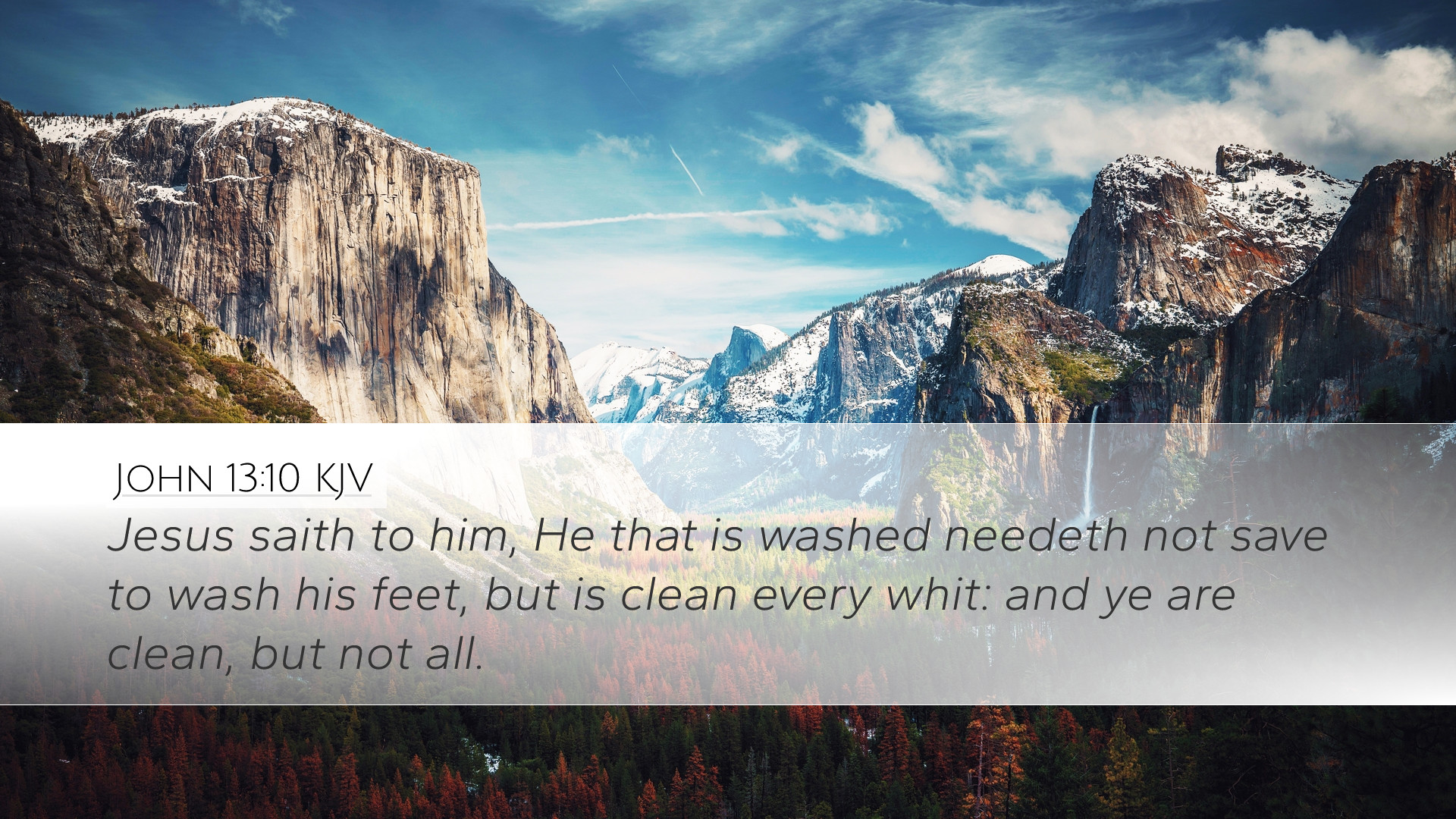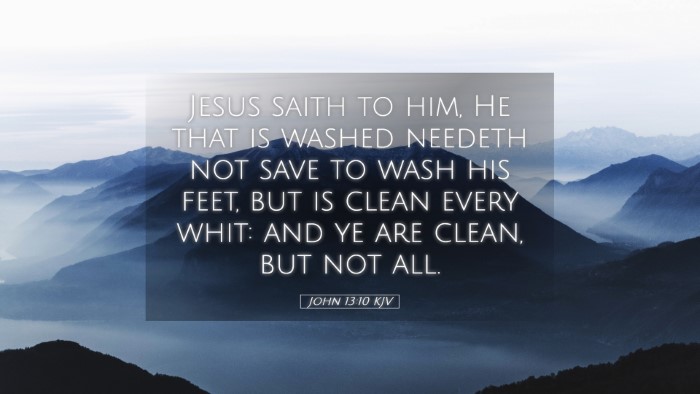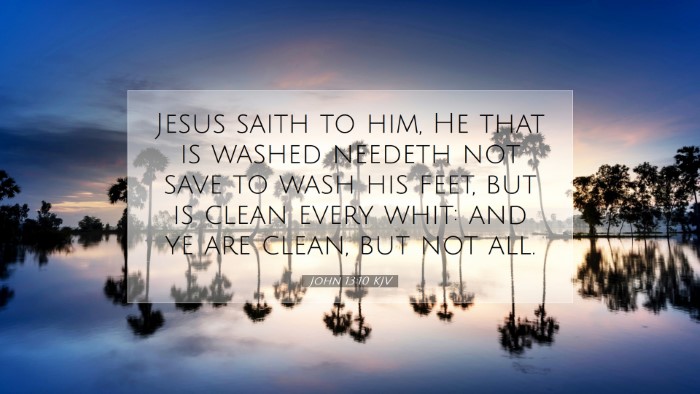Commentary on John 13:10
John 13:10 states: "Jesus said to him, 'He who is bathed needs only to wash his feet, but is completely clean; and you are clean, but not all of you.'" This profound statement occurs during the Last Supper when Jesus washes the feet of His disciples, exemplifying servitude and humility. The verse contains layers of theological insight that resonate with the themes of cleanliness, sanctification, and spiritual readiness.
Theological Significance
In this context, “bathed” signifies a complete cleansing, which in the spiritual sense, corresponds to the regeneration or the new birth that believers experience through Christ. John 3:5 emphasizes the necessity of being “born of water and the Spirit.” Thus, when Jesus speaks of being "bathed," He refers to the initial conversion and washing away of sin that occurs when a person places their faith in Him.
Understanding Foot Washing
The act of foot washing reveals the ongoing need for believers to confess their sins even after they have been justified. Adam Clarke remarks that foot washing symbolizes daily repentance and the need for continual cleansing of the stains that occur through walking in a fallen world. The feet represent those areas of our lives impacted by daily sin, and washing signifies the grace that God provides to restore us.
The Contrast of Cleanliness
Jesus highlights a contrast between being “completely clean” and the necessity of the disciples to “wash their feet.” Matthew Henry elucidates that this distinction is vital; it demonstrates the difference between our position before God (justified and clean) and our practical daily living (where ongoing repentance is required). Notably, when Jesus mentions, “but not all of you,” He alludes to Judas Iscariot’s spiritual condition, being among the clean yet unmarred by the power of true faith.
Examine Your Spiritual State
This passage encourages self-examination amongst believers. While they may be positionally clean and redeemed, there still lies the responsibility to maintain holiness in daily practice. Albert Barnes stresses that this implies that all Christians need to scrutinize their hearts, ensuring that they are not like Judas—bathing in the presence of Christ without the inward transformation that accompanies genuine faith.
Implications for Church Leadership
Pastors and church leaders can draw critical lessons from this verse. It illustrates the imperative of humble service, urging church leaders to model Christ's example of humility and service within the church community. It becomes a theological and practical framework for church leadership, emphasizing the necessity of being aware of one’s own spiritual state while serving others. Leaders who understand their need for continual cleansing will extend that grace to the flock they shepherd.
The Foot Washing as a Model for Ministry
The foot washing ritual, which preceded this verse, serves as an operational model for pastoral ministry. Just as Jesus washed the disciples’ feet, ministry leaders are called to serve with humility. This is a call to engage in acts that may seem lowly or undesirable, motivated by love and a desire to see others know the full cleansing offered by Christ. The need to wash feet can apply metaphorically to serving those who have fallen into sin, reminding us that restoration often comes through loving confrontation, gentleness, and support.
The Universality of Christ's Claim
The phrase “you are clean, but not all of you” refers specifically to the spiritual state of the disciples, but it extends to all believers. This universality placed within their sanctification narrative encompasses both the security of salvation and the constant call to vigilance against sin. Adam Clarke notes that Jesus made it evident throughout His teachings that not all who are among the faithful truly belong to Him. The implications of this are profound for anyone teaching scripture, serving the community, or studying the word; it signifies the need for discerning true faith amongst a gathering of believers.
Conclusion
John 13:10 serves as a reminder for all Christians about the dual nature of holiness: we are entirely secure in our salvation yet constantly called to live out that salvation through acts of repentance and humility. In unpacking this verse, the insights from Matthew Henry, Albert Barnes, and Adam Clarke coalesce to form a robust commentary that enables readers—pastors, students, theologians, and scholars alike—to delve deeper into the intricacies of spiritual cleansing, the requirements for practical holiness, and the implications for leadership in the body of Christ. This verse, rich with meaning, serves as a foundational teaching on both the theology of grace and the ethics of Christian living.


